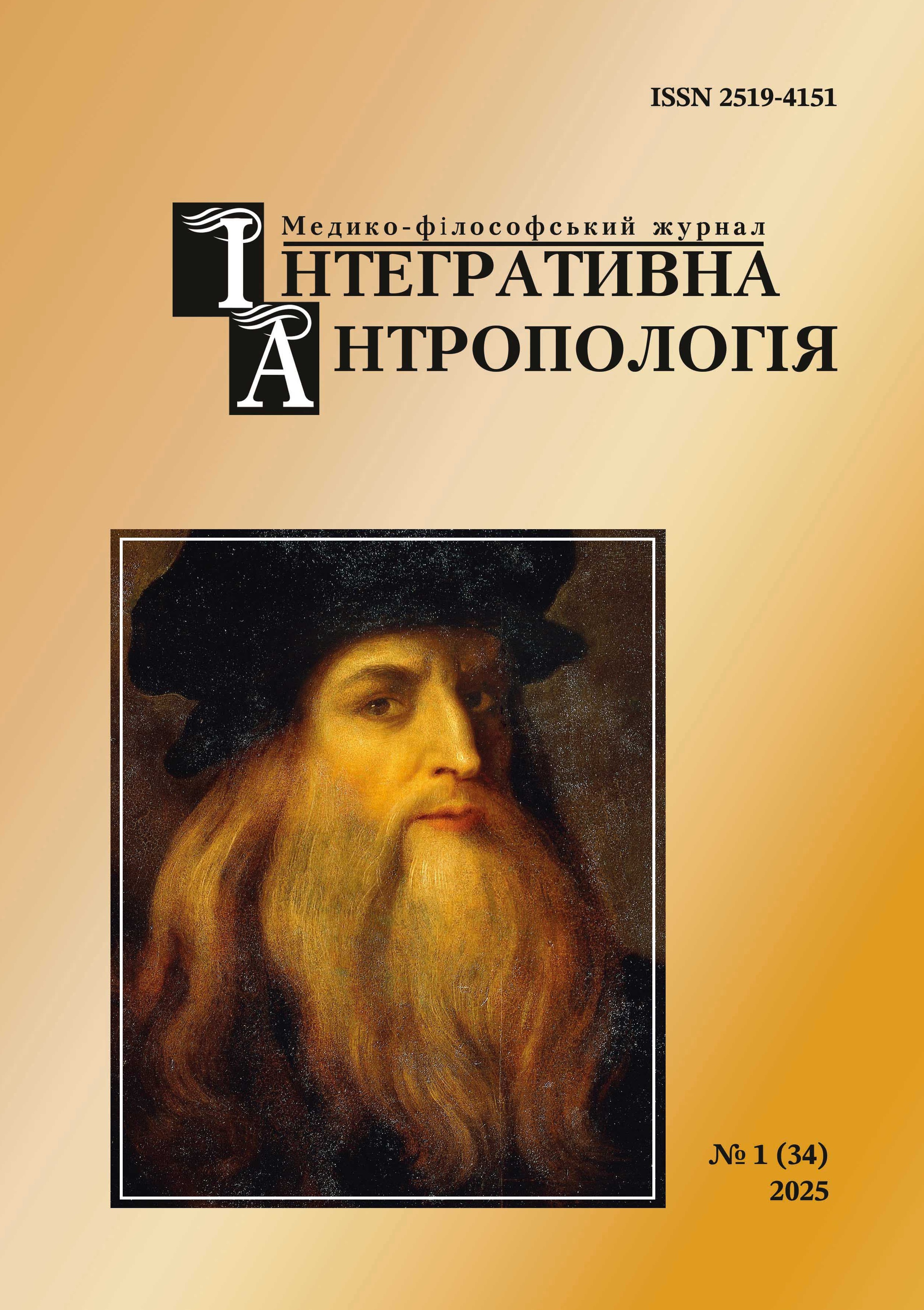PERSONAL INTEGRITY IN MILITARY CONDITIONS: CHALLENGES TO MENTAL HEALTH
DOI:
https://doi.org/10.32782/2519-4151-2025-1-10Keywords:
war, personal integrity, mental health, resilience, psychological assistance, post-traumatic stress disorder (PTSD)Abstract
Relevance. War is one of the most potent stress factors that has a destructive impact on the mental and physical integrity of individuals. For over 10 years, Ukraine has been facing military aggression from the Russian Federation, leading to mass psychological trauma among the population. This necessitates the study of challenges to mental health and the development of effective support strategies.Aim. To conduct a comprehensive study of the challenges psychology faces in preserving personal integrity during wartime and to determine effective strategies for supporting the mental health of the population. Methods of Research. Analysis of scientific literature on theoretical concepts of personal integrity under extreme stress; study of the impact of war on the human psyche; review of challenges for psychologists in providing assistance to the affected; identification of effective strategies for supporting and maintaining mental integrity. Results of Research. It was established that war significantly affects the mental integrity of individuals, causing the development of post-traumatic stress disorder, depressive and anxiety disorders. The main challenges for psychologists in the process of providing assistance were identified, including resource limitations and the need to adapt methods to extreme conditions. Effective support strategies were developed, such as fostering resilience, social support, and professional assistance.Conclusions. Preserving the mental integrity of individuals during war is critically important for individual and societal well-being. It is necessary to enhance psychological assistance and develop adapted methods for supporting mental health, taking into account the specifics of military conditions.
References
Інститут когнітивно-поведінкової терапії. Психологічна стійкість українців в умовах війни. URL: https://i-cbt.org.ua/resilience_ukraine/.
Орос М.М. Вплив війни на людину. Зміни психіки та характеру в умовах воєнного стану. Український медичний часопис. 2023. Т. 2. № 154. С. 26–30. DOI: https://doi.org/10.32471/umj.1680-3051.154.241952.
П’янківська Л. Вплив наслідків війни на психічне здоров’я людини: огляд зарубіжних досліджень. Theory and practice of modern science. 2022. № 2. С. 79–81. URL: https://previous.scientia.report/index.php/archive/article/view/37.
Красков O. Вплив факторів стресу, пов’язаних з війною в Україні, на психічне здоров’я молоді (на прикладі студентів 3–4 курсів Національного університету «Києво-Могилянська академія»). Психосоматична медицина та загальна практика. 2024. Т. 9. № 3. С. 45–53. DOI: https://doi.org/10.26766/pmgp.v9i3.522.
Зеленін В.В. Психологічні аспекти саморозвитку та самореалізації викладачів у системі вищої освіти в країнах Європи через коучинг. Психологія. 2024. № 3. С. 112–118. DOI: https://doi.org/10.32782/2709-3093/2024.3/10.
Bonanno G.A., Romero S.A., Klein S.I. The Temporal Elements of Psychological Resilience: An Integrative Framework for the Study of Individuals, Families, and Communities. Psychological Inquiry. 2015. Vol. 26. № 2. P. 139–169. DOI: https://doi.org/10.1080/1047840X.2015.992677.
Cohen S., Wills T.A. Stress, social support, and the buffering hypothesis. Psychological Bulletin. 1985. Vol. 98, № 2. P. 310–357. DOI: https://doi.org/10.1037/0033-2909.98.2.310.
Lincoln T. The Information: A History, A Theory, A Flood. Theological Librarianship. 2011. Vol. 5. P. 85–86. DOI: https://doi.org/10.31046/tl.v5i1.201.





